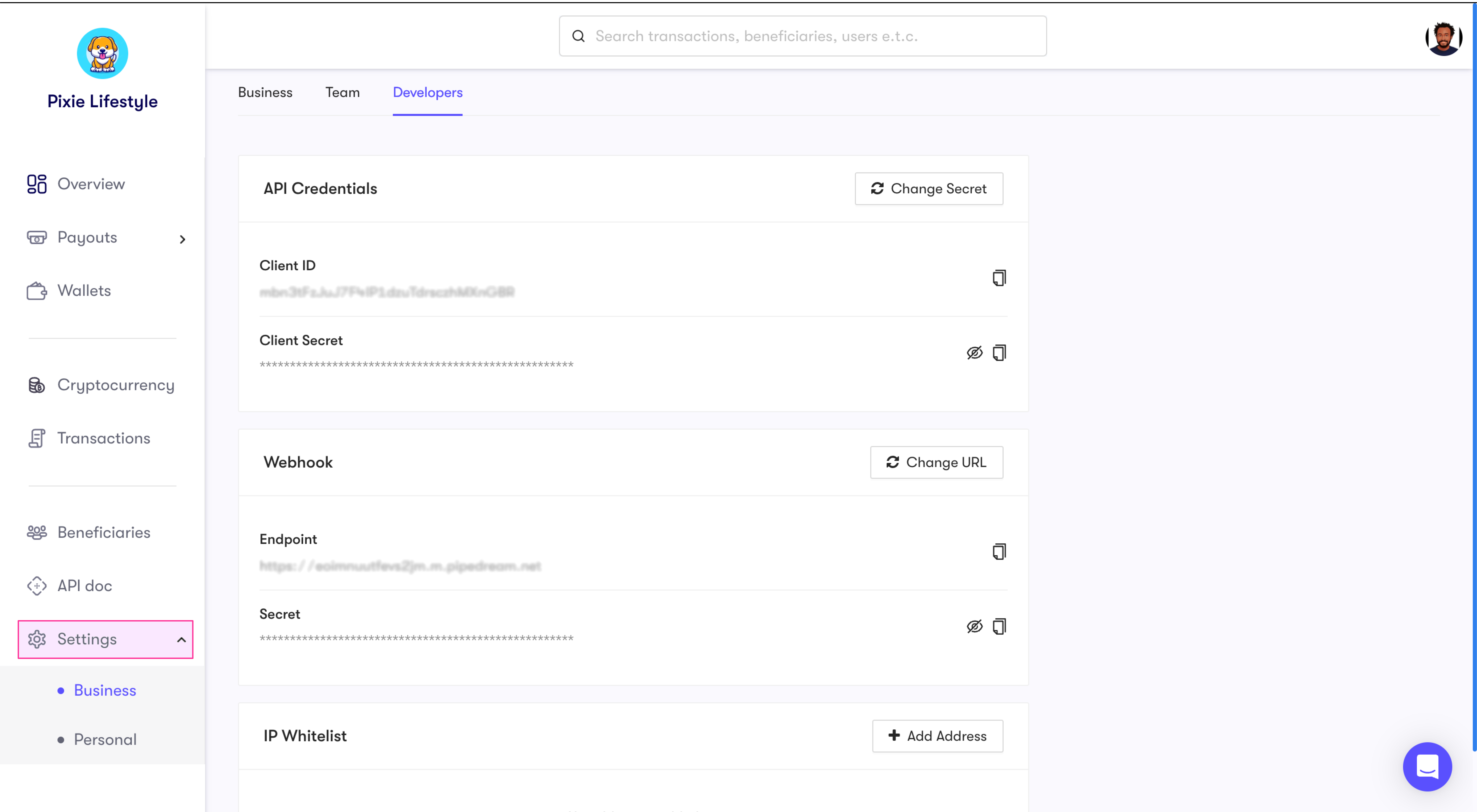Use API keys to authenticate API requests
👋 New to Eversend? Get access to Eversend.
Overview
Use our keys to build your integration.
All you need to get started with the testing is to get your API keys.
| API Keys |
|---|
| Client Secret Key - A unique set of string of numbers or letters used only during API implementation |
| Client Id Key - A unique set of string of numbers or letters used only during API implementation |
📋 Steps to get started with Eversend
This guide assumes you already have an Eversend account and access to our Dashboard.
- 🔑 Retrieve an Eversend clientId and clientSecret key
- ✍️ Make a request
- 💻 Start building!
1. 🔑 Retrieve an Eversend clientId and clientSecret key
To use Eversend products, you need a clientId and clientSecret API key to authenticate your requests.
You can retrieve API keys from the dashboard /settings/webhook
To retrieve your clientId and clientSecret key from your dashboard, First, select the "Settings" tab and navigate to "Developers"

Developers tab on settings page, showing your client id and client secret with webhook secret and webhook endpoint
Retrieve your clientId and clientSecret key, which will be used later in this guide, to make API requests.
2. ✍️ Make a request
You can interact with the Eversend infrastructure provider in your command line by making requests to REST APIs.
In this section, we're going to get a token using the clientId and clientSecret from the dashboard.
To get started, simply pass in the clientId: "your-id" and clientSecret: "your-secret" to your header.
Here is an example you can run from Postman or any API service platform.
Request sample:
curl https://api.eversend.co/v1/auth/token \
-X GET \
-H "clientId": "yryryryryr" \
-H "clientSecret": "yryryryryr" \
-d '{}'
Response sample:
{
"status": 200,
"token": "eyJhbGciOiJSUzI1NiIsInR5cCI6IkpXVCIsImtpZCI6IjE0ZkpUTmM0UzVsNkRPYnVRbGVGWSJ9"
}
Next steps
Congratulations ✳️, you have completed the Eversend Authentication!
If you do know which product you want, you can go directly to its documentation. Products documented here are Wallets, Transactions, Exchange, Payouts, Collections, Beneficiaries, Virtual cards.
